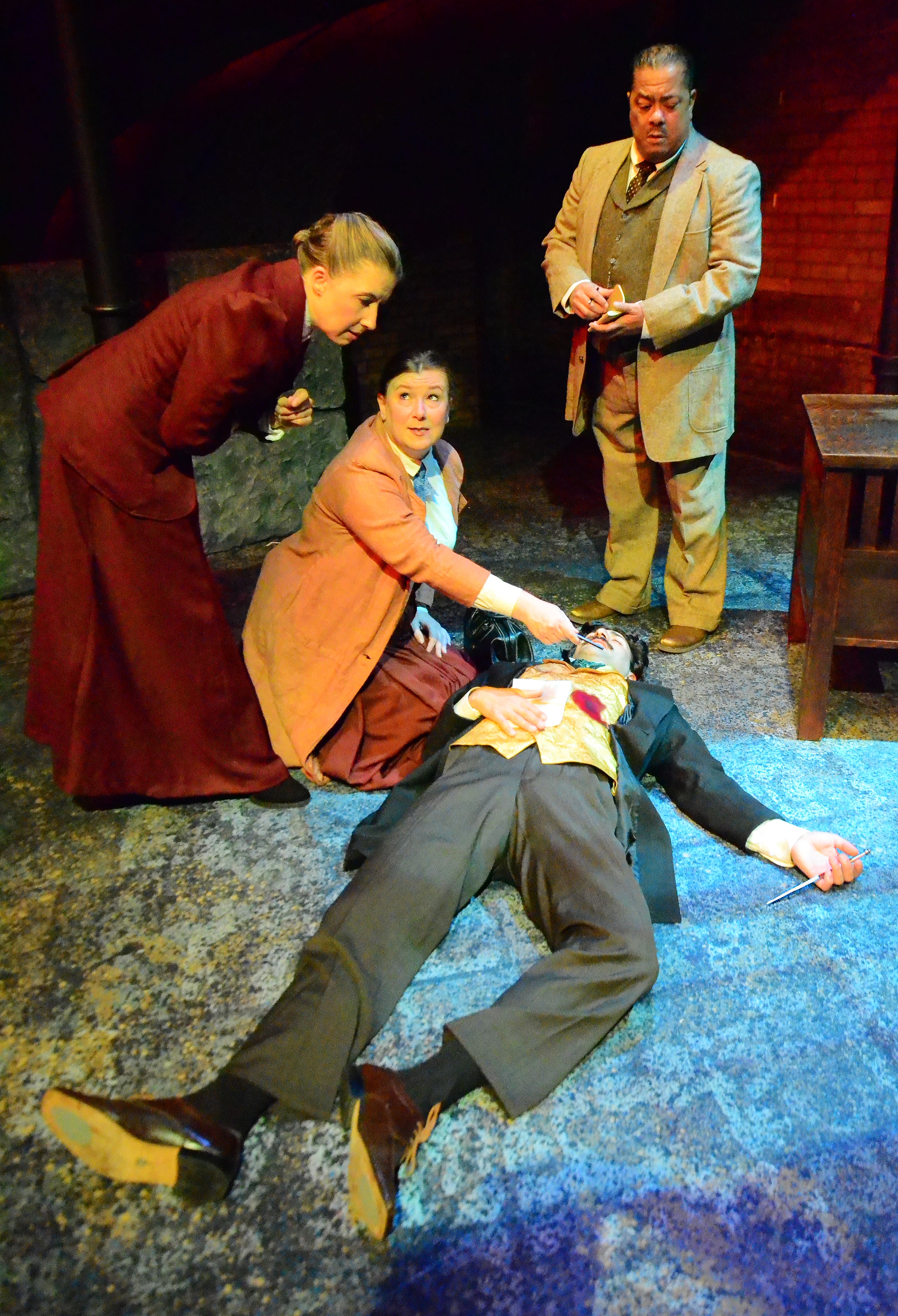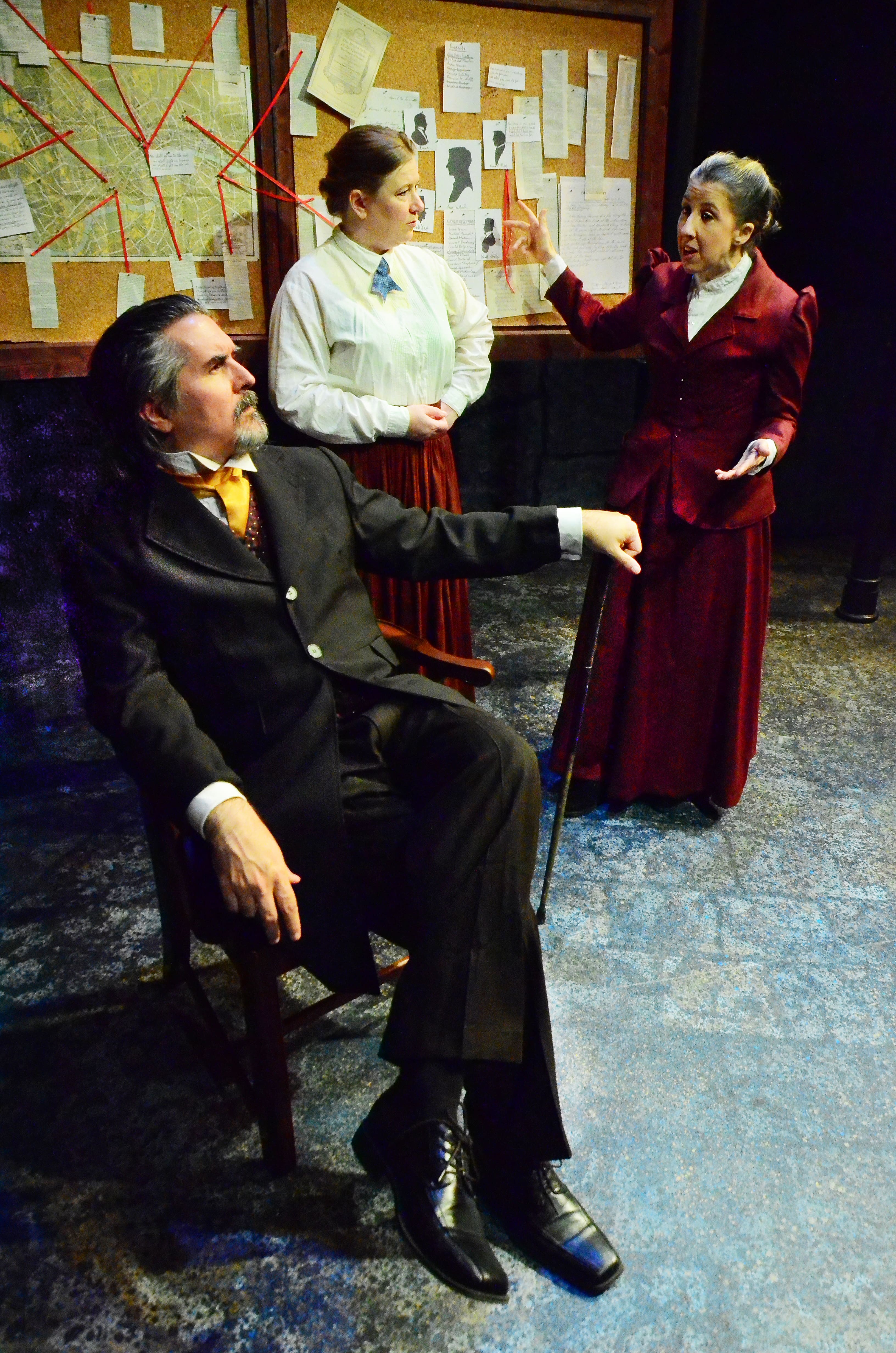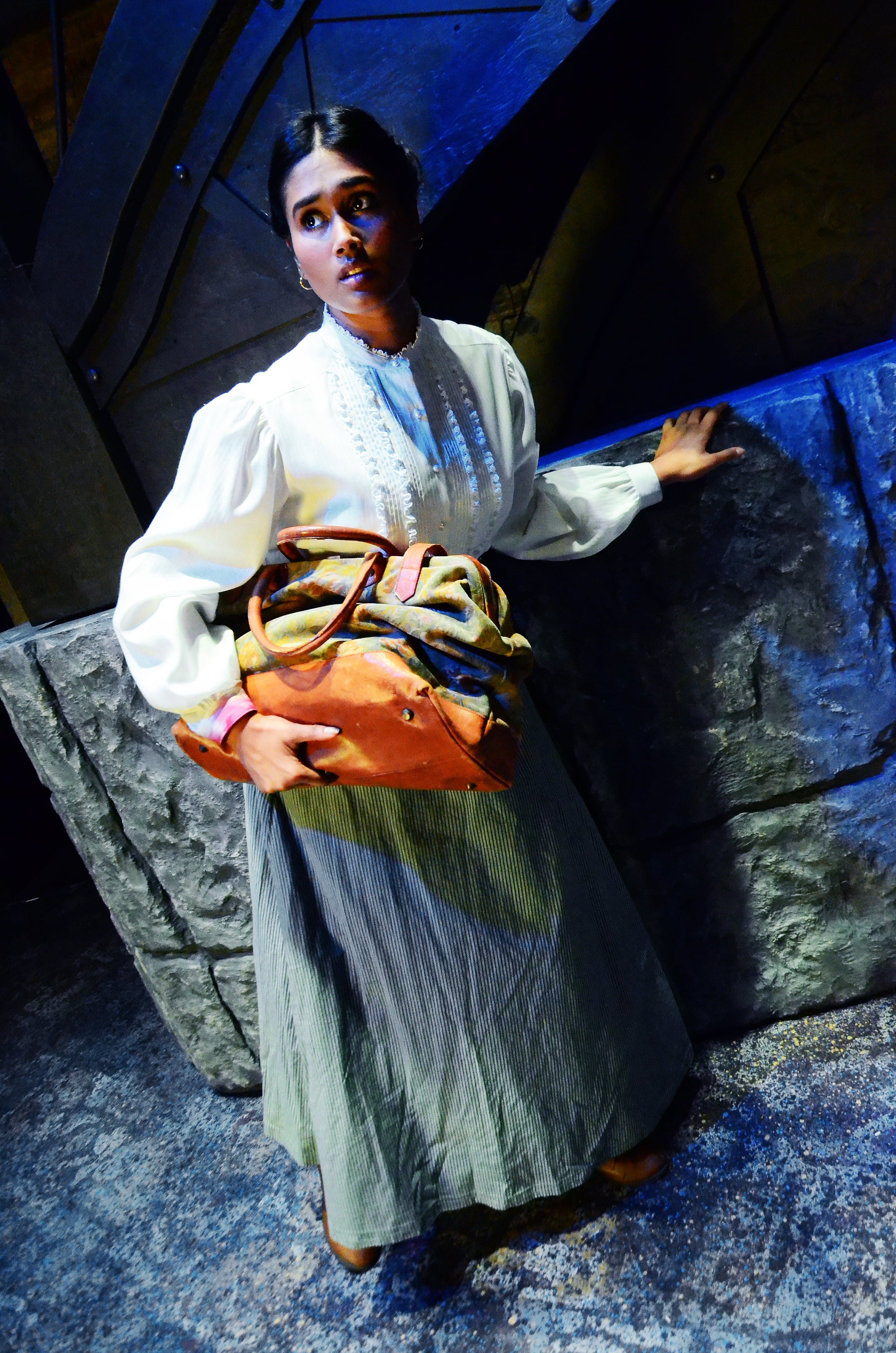A few weeks into rehearsal, dramaturg Maren Robinson sat down with playwright Christopher M. Walsh to talk about the return of Miss Holmes.
MR: It has been such a joy to spend time with Miss Holmes and Dr. Dorothy Watson again.
This play was going to debut before the pandemic started and was delayed. Do you think either
the play has changed or how you think about the play has changed in that time period?
CW: Yes to both. There are topics brought up in the play that have parallels in modern American
culture. When the early drafts were being written, some of those topics were more immediate in
the zeitgeist, and others were simmering in the background. More current events, however,
have shifted that focus. I think that is reflected in more recent drafts of the script, and especially
in the rewrites that have come about through working with Elise [Kauzlaric] and the cast in the rehearsal
process.
MR: Chris, you are also revisiting these characters after Lifeline’s successful debut of Miss
Holmes in 2016. What excited you about returning to these characters and do you think they
have changed since we first saw them?
CW: I think one of the things that excited me about returning to these characters was the chance to
see just how they’ve changed. The first play was about Sherlock and Watson meeting for the
first time, and navigating the first steps of their partnership. Miss Holmes Returns picks up the
story four years later. They’ve had time to learn a lot about each other, and develop a deep
bond. My favorite Sherlock Holmes adaptations are the ones that focus on the relationship
between Holmes and Watson.



MR: It struck me on working on both the first Miss Holmes and the sequel that when Sherlock
Holmes is a Victorian man he may work outside the law, but he is essentially still upholding the
values of the British Empire. With Miss Holmes and Dorothy Watson, as women are not only
operating outside the law, but also they are undermining Victorian British values, by being
women and doing what they do. I wonder if you could share some thoughts on if you felt that
was a goal of the play or a byproduct of them being women and if we are seeing them reach a
different conflict with those values this time?
CW: The first play, in its original conception, was an experiment. If Sherlock and Watson were
women, what circumstances in their backstories would have to change to bring them together?
And how would other characters respond to two women investigating crimes and solving
mysteries in Victorian England? The idea that Sherlock and Watson were taking on the
patriarchy was always present, but it became more overt as the script went through the
development process. I went into Miss Holmes Returns knowing that their fight against
patriarchy was fundamental. Having laid that groundwork with the first play, we have the
opportunity to explore other angles of that struggle, and meet new characters who have their
own experiences navigating this world, while continuing to find parallels with modern American
social issues.
MR: Chris, you always incorporate a lot of historical research and often neglected historical
figures in your plays. Is there some piece of your research that you feel will be of particular
interest to our audiences?
CW: The first play introduced Elizabeth Garrett Anderson, who in real life was the first woman in
Britain to qualify as a physician and surgeon. In the play, she functions as a mentor to our Dr.
Watson. In this new story we meet Josephine Butler, who was a prominent feminist and social
reformer, and a prolific writer. Her campaign to repeal a series of oppressive laws known as the
Contagious Diseases Acts serve as a backdrop to the action of Miss Holmes Returns.
Historically, Dr. Anderson and Josephine Butler had a public falling out over their differing
opinions of the Acts. I think it’s an interesting bit of historical trivia that connects the two stories,
even if only in the background.
MR: While the play is a great mystery do you think it offers us any lessons or moments to reflect
on the American empire now?
CW: I hope so. The campaigns against the Contagious Diseases Acts were as much about bodily
autonomy as the fight to codify Roe V. Wade is today. And I think it’s worth noting that these
stories, like Doyle’s original stories, take place when England was at the height of its imperial
power. Thanks to its navy, Great Britain had the largest military the world had ever seen. It was
inconceivable that anything could bring down something as monolithic as the British Empire.
But, its power was built upon colonialism, white supremacy, and patriarchal social values. And
about half a century later, the empire would be reduced to Great Britain itself, and a handful of
small islands on the other side of the world, and it would spend the second half of that century
trying to climb out of the massive hole it had dug for itself.
MR: Chris do you think we’ll be seeing a third installment featuring Miss Holmes and Dorothy
Watson?
CW: Never say never! There is an infinite amount of possibilities as to where these characters might
go next. If the audiences are willing to continue on the journey, then I hope we’ll have the
opportunity to tell more of these stories.
MR: Thank you for your time. Are there any last thoughts you want to share for audiences
before they come to the theater?
CW: Thank you for supporting live theater, and I hope you enjoy the show!

